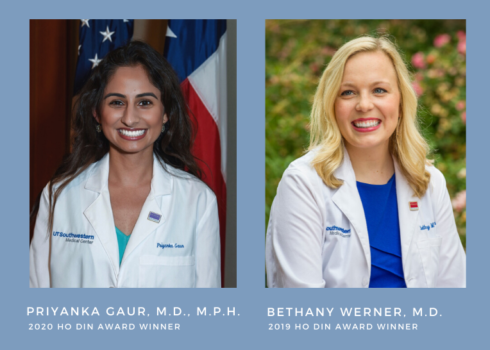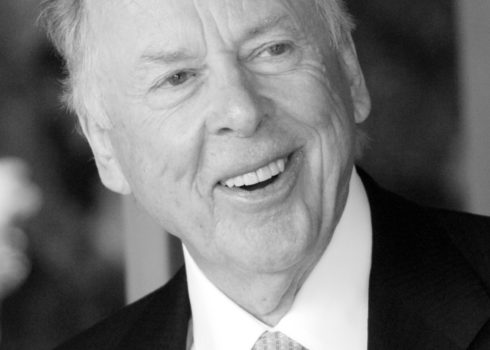Randall Rosenblatt, M.D. is highly regarded as a leader in pulmonary disease and a trailblazer in lung transplantation in North Texas. Southwestern Medical Foundation has the privilege to honor his immense legacy through the Randall L. Rosenblatt, M.D. Distinguished Chair in Pulmonary Disease, a gift brought to reality by an anonymous donor.
Dedicated to Treating Pulmonary Disease
After earning his medical degree at Indiana University School of Medicine, Dr. Rosenblatt moved to Dallas where he completed his internal medicine residency and pulmonary/critical care fellowship at UT Southwestern and Parkland. He is grateful to Dr. Alan Pierce, whom he credits for mentoring and encouraging him to pursue a career in pulmonology.
Dr. Rosenblatt has dedicated his life and his work to the field of pulmonary disease and making outcomes better for his patients.
Kathleen M. Gibson, President and CEO of Southwestern Medical Foundation
After finishing training, he began his career at St. Paul Hospital through its pulmonary practice, Southwest Pulmonary Associates, and continued his relationship with UT Southwestern and Parkland. At St. Paul, Dr. Rosenblatt joined Dr. Steve Ring, who had established UT Southwestern as a major referral center for heart transplantation. Dr. Rosenblatt was hired to build and direct the institution’s new lung transplant program at a time that lung transplants were a relatively new therapy for patients with terminal lung disease and were performed at only a few centers across the country. Among other leadership positions, he served as the Chief of Internal Medicine while at St. Paul.
Legacy in Lung Transplants
Dr. Rosenblatt set the stage for lung transplant procedures and patient care at UT Southwestern. Today UTSW’s lung transplant team has performed more than 900 lifesaving transplants – making its program the largest in North Texas and the second largest in Texas, and consistently ranking among the top 20 programs in the country.
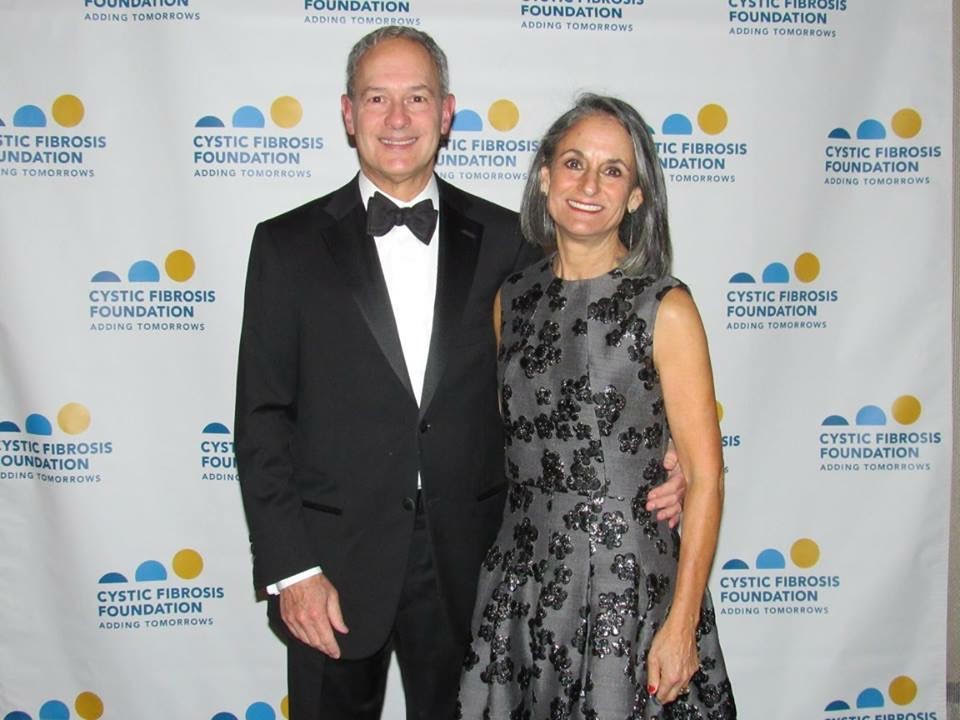
He also established and directed UTSW’s adult cystic fibrosis clinic, which was known as an experienced center in performing lung transplants for patients with cystic fibrosis. In the 1970s, the median life expectancy for such patients was 13 years, but since then, Dr. Rosenblatt and others helped to dramatically change the trajectory of the disease. According to the Cystic Fibrosis Foundation, half of children born between 2015 and 2019 with cystic fibrosis are predicted to live to age 46 or even longer.
In 2010, Dr. Rosenblatt joined the faculty of Baylor University Medical Center, part of Baylor Scott & White Health, in Dallas and was appointed Chief, Pulmonary and Critical Care the following year. Throughout his 40-year career, he has made a tremendous impact on the lives of his colleagues, patients, loved ones, and the Dallas community.
“Dr. Rosenblatt has dedicated his life and his work to the field of pulmonary disease and making outcomes better for his patients. As one of the early pioneers of lung transplantation, he gained the respect and admiration of other leaders in the field and helped shape the medical training of future physicians. He is a master of team-based care, and his trainees and colleagues everywhere follow his example. Dr. Rosenblatt is a humble and compassionate healer who embraces the extraordinary opportunity of treating patients with severe disease and giving them a second chance at life. The distinguished chair established in his honor will strengthen the foundation of support that makes UTSW a leader in this field,” said Kathleen M. Gibson, President and CEO of Southwestern Medical Foundation.
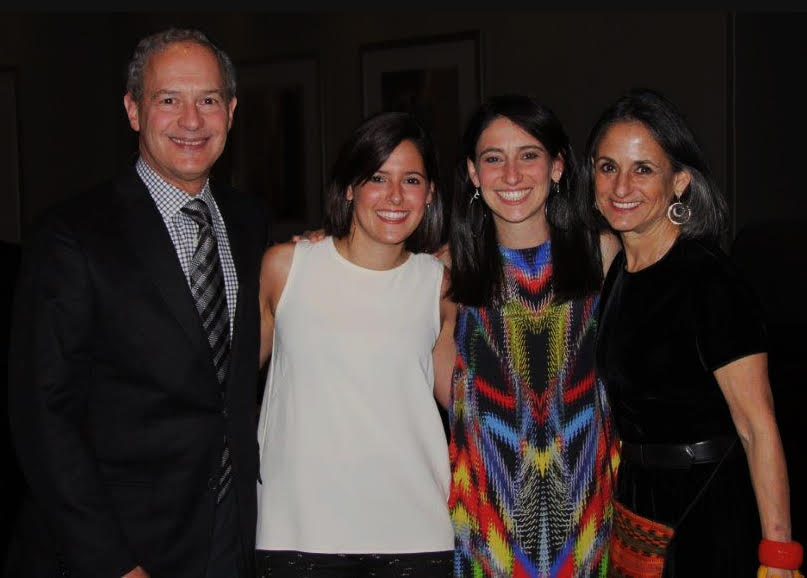
Dr. Rosenblatt, Daughter, Molly; Daughter, Anna; Spouse, Barbara.
I’ve come to recognize that those who were fortunate enough to have a transplant would not have had a chance of being alive without it. One of the rewards of being a physician is knowing that we have given these patients more time – time that spouses can spend with each other, time that a parent can spend with a child, time that would not have happened without a transplant.
Randall L. Rosenblatt, M.D.
Admired by Colleagues
The following testimonials are an endorsement of the work and dedication to medicine that Dr. Rosenblatt has displayed throughout his career.
Dr. Steve Ring
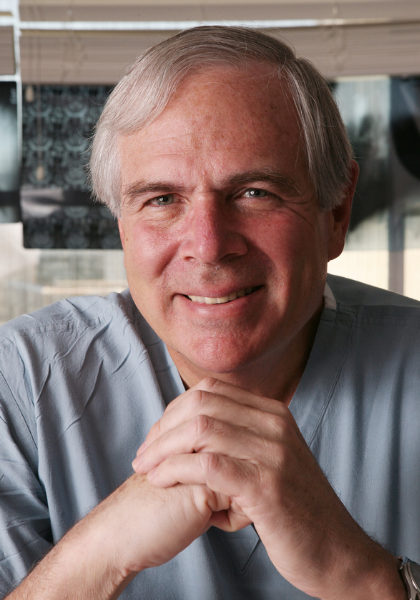
Dr. Steve Ring is Professor in the Department of Cardiovascular & Thoracic Surgery at UT Southwestern, where he served as past Chairman of Cardiovascular and Thoracic Surgery from 1988-2010. He was Director of the UT Southwestern Heart and Lung Transplant Programs originally at St. Paul Medical Center and later University Hospital St. Paul. Through a joint venture between UT Southwestern and Baylor University Medical Center, Dr. Ring also directed the heart and lung transplant programs at Baylor from 1996-2013. He served as Chief of Pediatric Cardiac Surgery at Children’s Health where he performed the institution’s first pediatric heart transplant in 1988.
I met Dr. Rosenblatt when we were in the early planning stages for the UT Southwestern transplant program at St. Paul. He was actively involved in a joint venture between UTSW and the St. Paul Medical Center Heart Transplant Program, and I recruited him to be the first medical director of the Lung Transplant Program. We cooperated extensively on the development and success of the initial heart transplant program. We then trained at the University of Toronto, where the first successful single lung transplants were being performed before establishing St. Paul’s lung transplant program, performing the first lung transplant at St. Paul in the fall of 1990.
Early on in Dallas’s lung transplant program, Dr. Rosenblatt became the Director of the Adult Cystic Fibrosis Clinic at Children’s. The outcomes of cystic fibrosis patients have improved dramatically over the years with lung transplantation providing an option for end-stage disease. Since starting the lung transplant program in 1990, Dr. Rosenblatt drove much of that success through his activities with the National Cystic Fibrosis Foundation, serving on their credentialing committee and clinical guidelines committee.
Dr. Rosenblatt is one of the best clinicians I’ve worked with in my career. He really cares for his patients and is highly respected by the Dallas community as a pulmonologist outside of his transplantation career. He is an outstanding educator and has inspired me in my work. To me, my career hasn’t always been about what I do – it’s about the team I work with, and it was a great pleasure for me to work with leaders like Dr. Rosenblatt over the years.
Dr. Joseph Viroslav
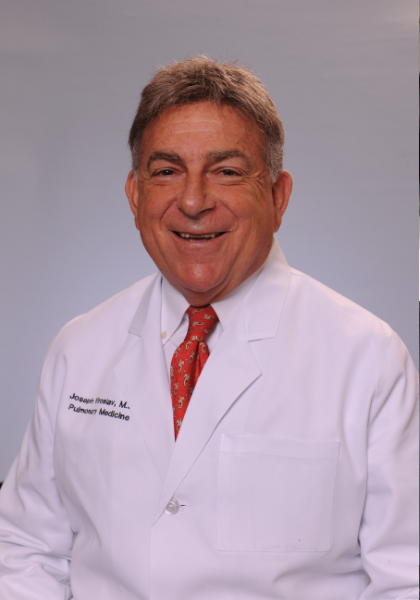
Dr. Joseph Viroslav is a pulmonologist for Southwest Pulmonary Associates and Professor of Internal Medicine at UT Southwestern Medical Center.
In 1972, I was recruited to St. Paul Medical Center as a pulmonary specialist. I met Dr. Rosenblatt when he was a fellow. After he graduated, I invited him to join the Southwest Pulmonary Associates, a private practice we created at St. Paul Medical Center. We became the directors of training at St. Paul Internal Medicine and Critical Care. After UT Southwestern Medical School acquired St. Paul Hospital, we joined the staff as part-time faculty. Dr. Rosenblatt later went to Baylor University Medical Center, where he is today.
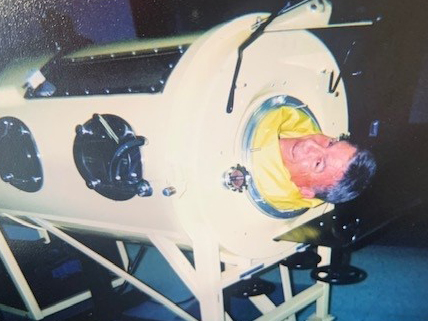
I recruited Randy because of his excellence and humanity. He is a charismatic, caring, and intelligent individual and is very giving to his patients and their families. Dr. Rosenblatt takes time with each patient to fully educate them about the disease process and their health.
He is a terrific leader, and everyone loves working for him. He is very devoted to educating his workers, co-workers, and faculty. I have called him my trusted colleague and friend for more than 40 years and he has become an important part of my family.
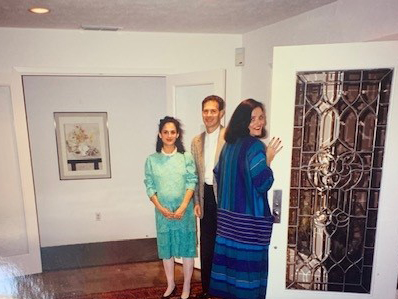
Dr. Marvin J. Stone
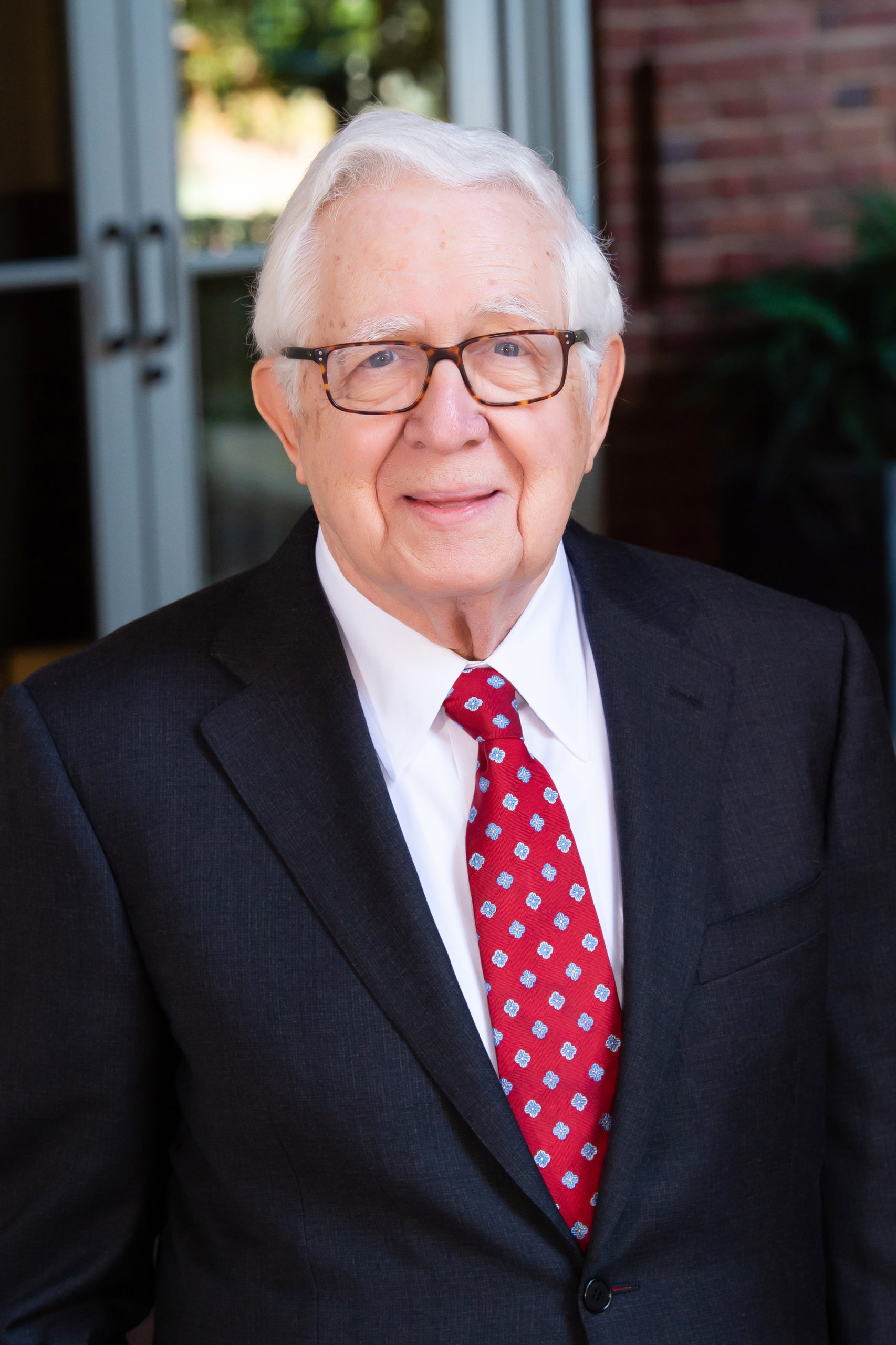
Dr. Marvin J. Stone is Chief Emeritus of Hematology and Oncology at Baylor University Medical Center at Dallas; Professor of Internal Medicine at Texas A&M College of Medicine; and Clinical Professor of Humanities at the University of Texas at Dallas. He is a Master of the American College of Physicians and Fellow of the Royal College of Physicians (London).
Randy Rosenblatt is a native Midwesterner who received his M.D. from Indiana University School of Medicine. I met him in the mid-1970s when he was a medicine resident at Parkland Hospital. Randy demonstrated several qualities early in his training: he was an excellent clinician and stimulating teacher with a droll sense of humor. If he didn’t know the answer to a question, he would say so. Randy took his fellowship in pulmonary medicine under Dr. Alan Pierce, one of the most respected teachers in Donald Seldin’s superb Department of Medicine at UT Southwestern.
Randy became a pioneering specialist in lung transplant medicine at St. Paul Hospital where he, along with Dr. Steve Ring of the UTSW Department of Surgery, developed expertise in this new specialty. Randy established a highly successful clinic for cystic fibrosis patients who benefitted remarkably from lung transplantation.
In 2010, Randy moved to Baylor University Medical Center at Dallas, where his talent for effective teaching has added major thrust to the medical student and house staff programs. The lung transplant program has continued to thrive under Randy’s leadership.
Randy and I have taken care of patients together during his 40+ year career. It has always been a privilege for me to participate and to observe Randy’s consistently thoughtful and incisive approach to helping seriously ill people. He exhibits competence, caring, and compassion in an exemplary manner. The Randall L. Rosenblatt, M.D. Distinguished Chair in Pulmonary Disease will be a major addition to clinical and scientific excellence at UT Southwestern.
Dr. Anna Rosenblatt
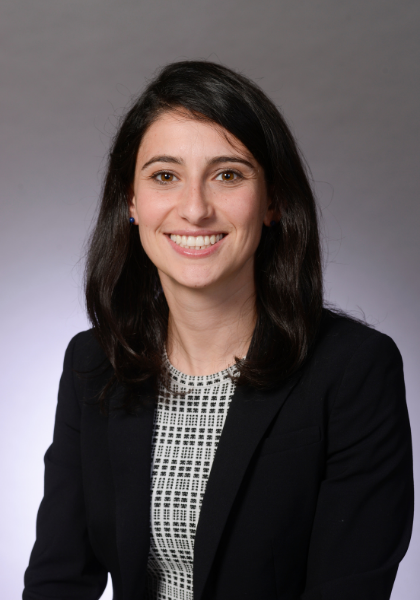
Dr. Anna Rosenblatt is a third-year cardiology fellow at UT Southwestern and the daughter of Dr. Randy Rosenblatt. After completing her fellowship, she will begin a two-year fellowship in electrophysiology at UT Southwestern.
My dad used to say to my sister and me, ‘Always find a career or a job that you would do for free, and then get someone to pay you for it.’ I think that’s how he lived his life. He really loves being a physician and a teacher, and it was a joy and honor to do those things that ended up being his livelihood.
Along with a great sense of humor, he is extremely honest and dedicated to his family, his patients, and his colleagues. My dad holds high standards for himself and the people who work around him. As a child, I remember he was busy but always available to me. It was before cell phones and tracking devices, but I could reach him at any time by calling the answering service or the hospital – I still remember his pager number. It was comforting for me that he was always there.
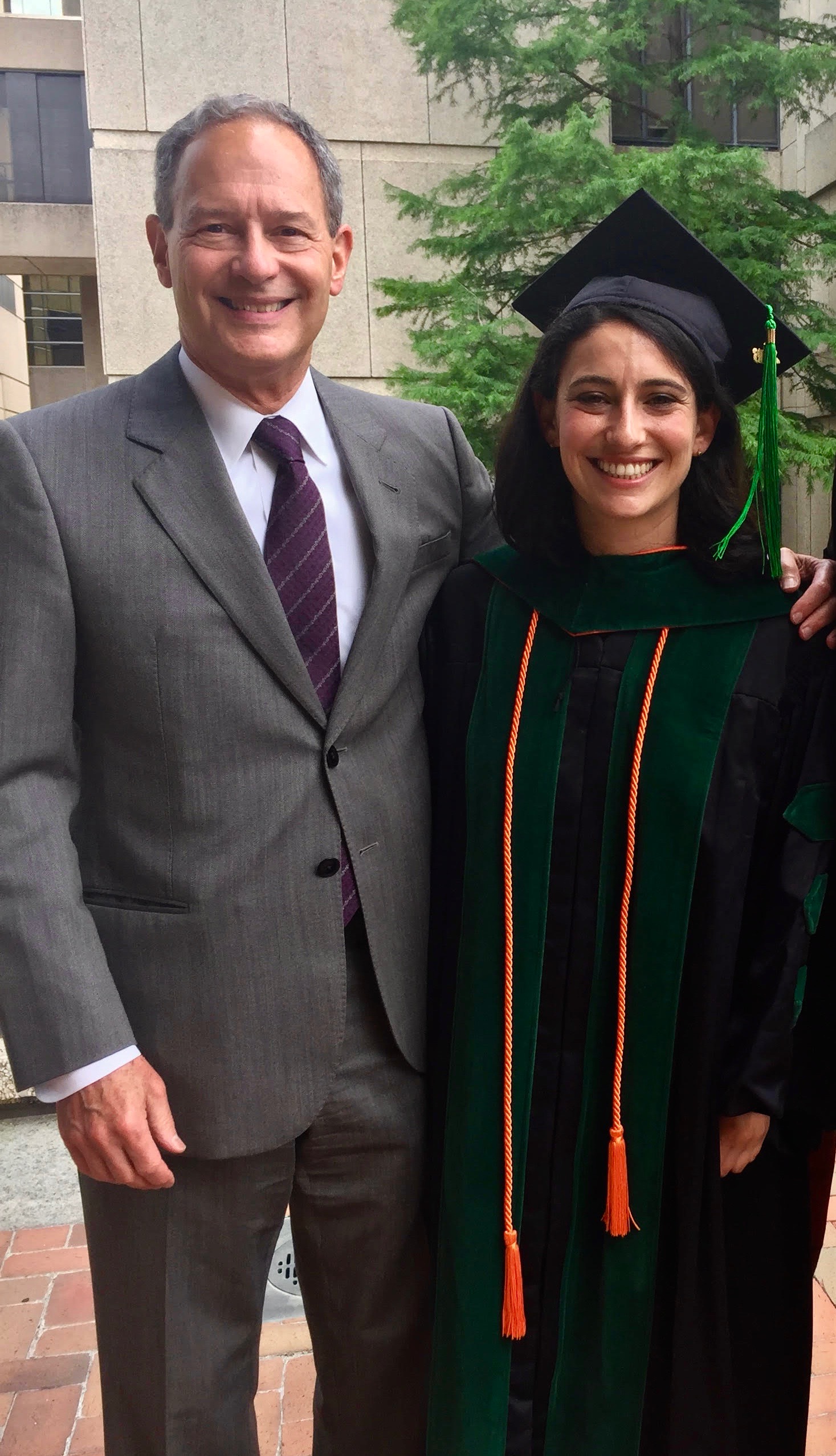
From an early age, I remember seeing letters from patients and their families about how appreciative they were of his involvement in their lives. At UTSW, I meet patients who were his patients. I love hearing stories from nurses and prior trainees or colleagues about the impact he had on their careers.
My dad was my role model in a sense that I got to see what being a physician was like. He loves his job and loves caring for patients. I chose to pursue a career in medicine because I knew that I could directly impact people’s lives for the better.

